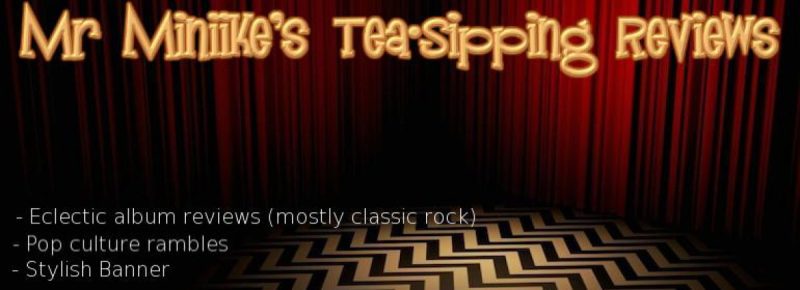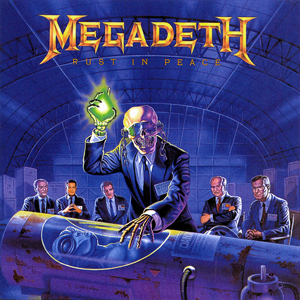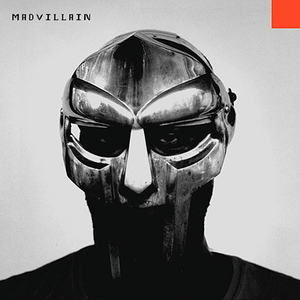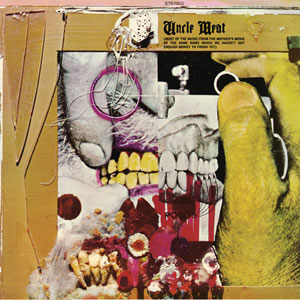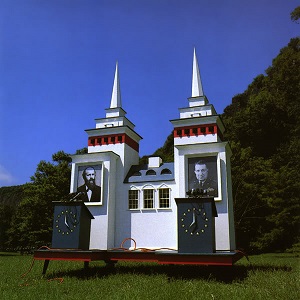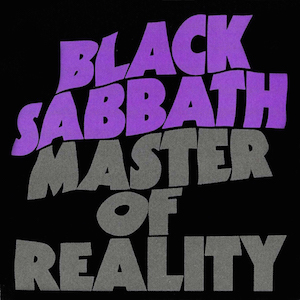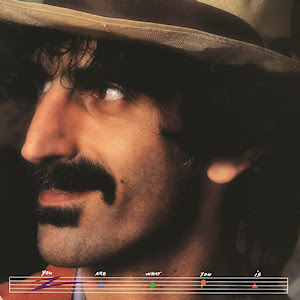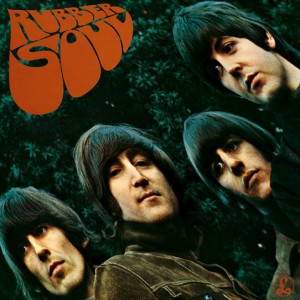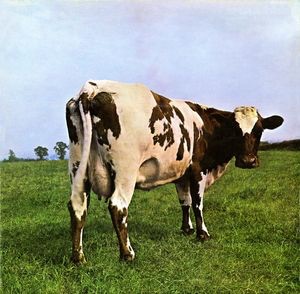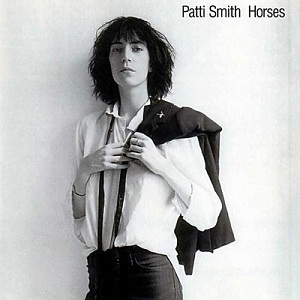
Patti Smith! Proto-punker! Aggressive poet! Caustic voice! Female Captain Beefheart! Down-and-dirty mistress of grit and rebellion! Right? Right?
Well, kind of. The most surprising thing to me about Horses on my first listen is how bombastic it is. George Starostin (who’ll I’ll try to quote less from now on because I’ve been overkilling it recently, but he’s just so darn quotable) described it as “punk theater for all those snobby bohemians in Greenwich Village.” Now, Mr. Starostin is not exuberantly fond of this album for that very reason, but I find that to be a plenty engaging premise. Horses is, after all, essentially a collection of rambling poetry, about as self-consciously arsty and un-gritty as you can get. It’s easy to imagine this stuff being performed on a messily decked-up stage in the New York Bohemian Rent-style gutters of the world.
The very first song, for example, is much more theatrical then punk ever cares to be. “Gloria” opens with an unassuming piano intro before Patti’s characteristically sneering, endlessly pessimistic voice informs us that “Jesus died for somebody’s sins, but not mine.” The tempo and tension build as she throws all caution to the wind in a distilled summary of the punk ideology. The meat of the song is a cover of a 60s pop tune, originally from the point of view of a male doing 60s things, like seeing a girl and “wanting to make her mine.” As if the fact that the singer is now female wasn’t confusing/puritian-irking enough for you, her vocals constantly switch from somewhat sincere to jokey and sarcastic. The band builds some infectious energy and backing vocals provide the amazing “Gloooooorriiiiaaa” refrain. And there you go: a quintessential punk song constructed out of safe 60s pop and mostly traditional (but still powerful) instrumentation.
The rest of the album is less melodic, not working with previous music and all, leaving the delivery in a Leonard Cohen-type area of existence. I do miss the fun inflections that Patti gave to the “normal” melody of “Gloria”, but clearly her semi-spoken word delivery is what she wanted to put her effort into. It’s not totally inaccessible or anything, though: “Redondo Beach” features a pleasant ska arrangement, one that manages to distract from the lyrics about looking for someone on a beach only to see that they’ve committed suicide. At least until you read reviews on the internet that tell you that’s what the song is about.
When people talk about Horses being inaccessible, they’re usually talking about the “booooring” lengthy tracks of “Birdland” and “Land:.” Being the contrarian I am (at least as much as I can be while praising a Patti Smith album), I adore both of these. “Birdland” is an incoherent nine-minute ramble from the perspective of a man who’s just lost his father, but is only now coming to terms with what that really means. The simple arrangement of the melancholy piano and dissonantly creeping guitar allow Patti’s passionate vocals and bizarre writing to shine, and the results are as odd as they are emotionally compelling. The multipart “Land:” makes melodic references to “Gloria” with a super-thick creepy atmosphere, telling a twistedly unpredictable story of the misadventures of “Johnny”, an everyman of questionable sanity.
“Kimberly” is another highlight, an engagingly funky exercise that goes from the feeling of holding your baby sister for the first time to saving said baby from an exploding building. “Free Money” is an honest look at Patti’s tough upbringing. “Break It Up” is…well, it’s just gorgeous, at least compared to the rest of the album, with another stirring refrain. “Elegie” closes out the album on a suitably druggy, melancholic note.
Another short review, but dangit, this isn’t an easy album to describe. I’m not sure I’ve gotten across just how unique it is and how moving it can be. It’s not very solid compositionally, but it’s a fascinating and passionate look into Patti’s psyche. For the “female Captain Beefheart”, Patti’s got a lot of heart.
Music: 4/5
Thematic Content: 5/5
Lyricism: 5/5
Diversity: 1/5 Well, there is “Redondo Beach.”
Resonance: 5/5
Experience: I really need to stop using my best metaphors in the actual reviews.
10/10. Best Song: Either Gloria or Birdland.
